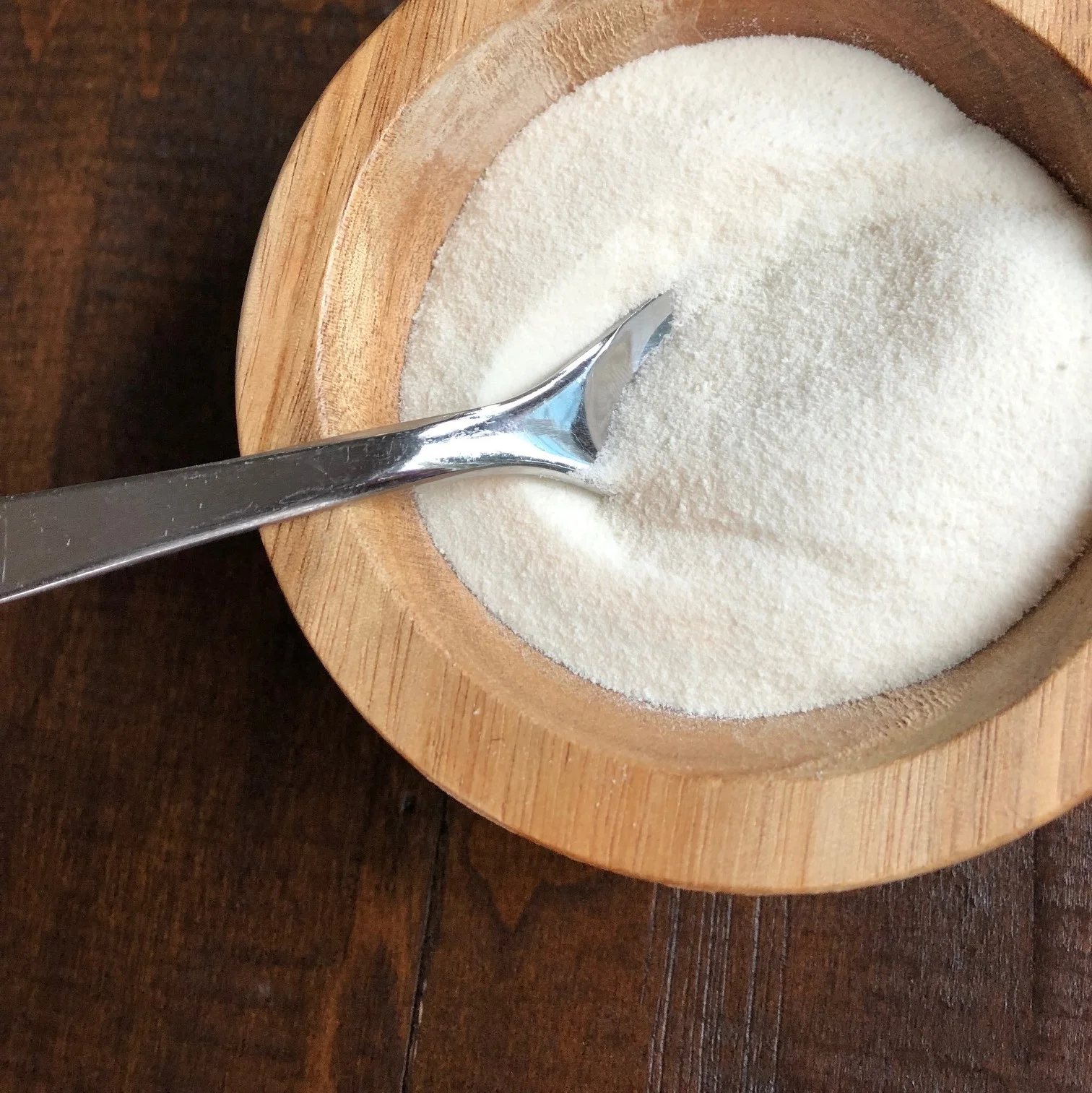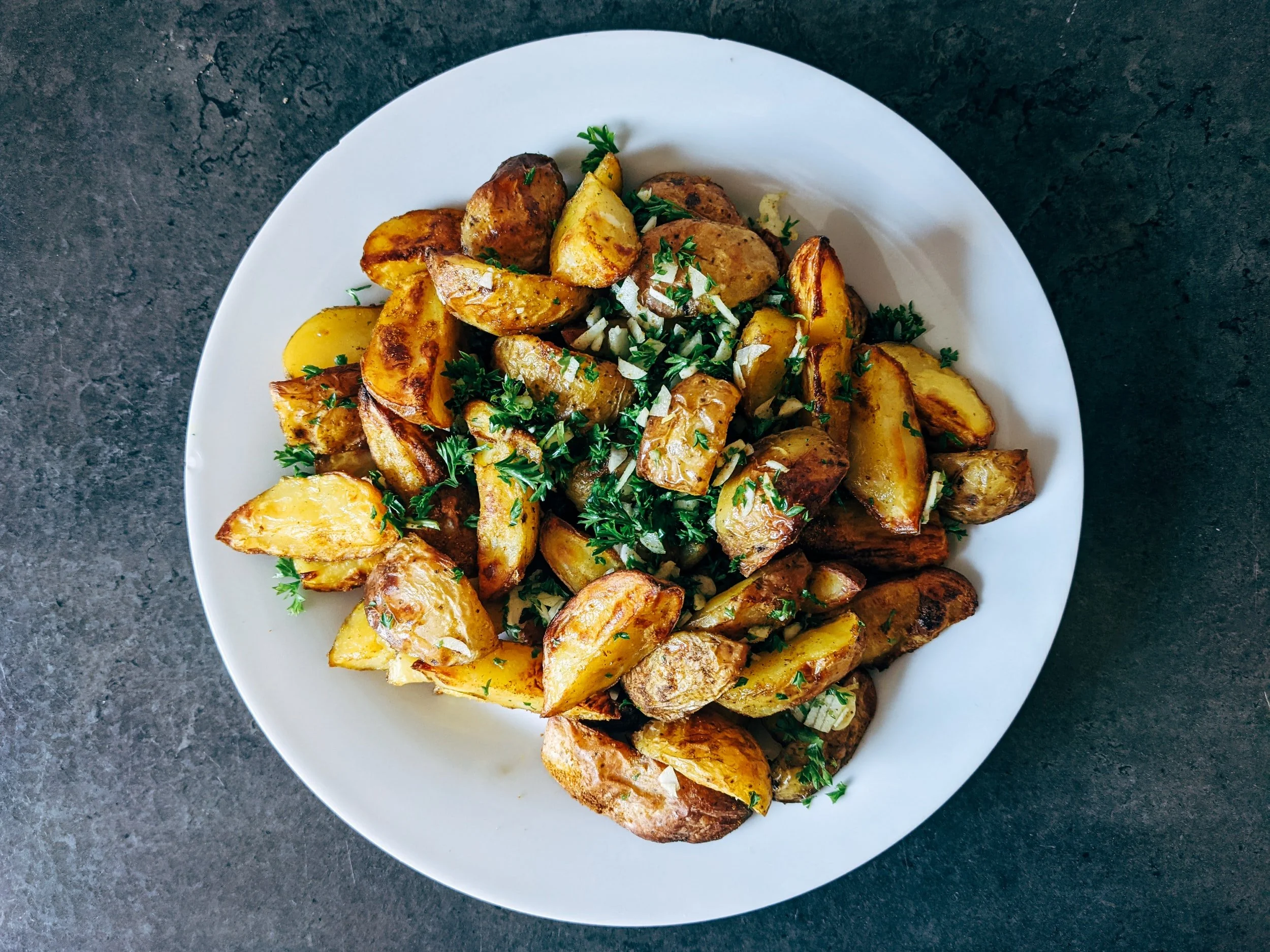Collagen is one of the most abundant proteins in the human body and the amino acids that make it up are essential building blocks in supporting the integrity and structure of our skin, bones, tendons, ligaments, muscles, blood vessels, and teeth as well as the entire gastrointestinal tract lining. As we age, our body gradually produces less. It is pretty different for everyone, but genetics, stress level, diet, smoking, age, and sun exposure may all influence how much we are producing.
Lifestyle Habits to Improve Gut Health
The health of your digestive tract isn’t just about the food and drink we are consuming. Digestion is one of the most important and resource-intensive processes our body goes through on a daily basis and requires a lot more than just eating the right foods. A lot of things have to be going right for our gut to be strong and functioning how it should.
Am I Eating Enough?
Whether you are intending to or not, not eating enough is a stressor to the body which can actually slow your metabolism, and dysregulate blood sugar and cortisol causing even more stress to the body. Also, not eating enough pretty much guarantees that you will be undernourished which means that your body isn’t getting the nutrients it needs to function optimally.
Am I Eating Too Much Protein?
Protein gets a bad rap these days. Some say we are generally eating too much protein and others will say that we are not eating enough. Considering how satiating protein is, I think it is pretty hard to overdo it. When it comes to my clients, I think many are generally not eating enough of this crucial macronutrient.
Give Your Body An Oil Change
Using the right oils for cooking and consumption can make a big impact on your overall health. Oils and fats are not all created equal. Some are natural and nutrient-dense. Others are man-made and toxic to our bodies. Some are robust and can stand up to high heat, others are fragile and break down easily, causing them to lose all of their nutritional properties. Read on to learn how you can make sure you are consuming the right fats and oils for the best health.
Are Carbs Bad For You?
There is a ton of fear and villainization of carbohydrates (“carbs”) out there and a lot of conflicting information. Some label all carbs as bad and others differentiate between “good” carbs and “bad” carbs. The purpose of this post is to cut through the dogma and get to the real truth about whether or not you should be eating them.
What is an FNTP?
As a Functional Nutritional Therapy Practitioner (FNTP) I take a holistic, foundational approach to my client’s health, looking at the big picture and diving deeper into areas that are out of balance to encourage the body back to a place of homeostasis or balance. We believe that they symtoms that our bodies present are messages our bodies are sending us crying out for help and telling us that something isn’t quite right.
What Foods Can Improve My Gut Health?
What Is An Emotion Code Session Like?
What is The Emotion Code?
Benefits of Eating Fermented Foods
One of the easiest and BEST ways to improve your digestion and overall health is to consume fermented foods daily. I recommend eating fermented foods to all of my clients. Depending on what you’ve got going on digestively, you may have trouble with them at first. If this is the case for you, let’s work together to see what is going on and get you to a place where you can tolerate and enjoy these magical superfoods.
3 Steps to Connect To Your Food + Your Mind +Your Body
The practice of being mindful while eating allows us to pay attention not only to our food but ourselves. When we eat under stress, we are robbing our bodies of nourishment and the nutrients we need to thrive. I say this all the time, it isn't always about what we eat, but how we eat that can make a difference in your health.
Start Savory For Balanced Energy
What To Expect In An MFT Session
The Connection Between Stress and Blood Sugar
The Best Test For Food Sensitivities
Food sensitivity testing is quite popular these days (and for good reason!) and I’ve seen a huge uptick in companies offering them direct to consumers and an uptick in questions about these tests from my clients. Unfortunately, most of the at-home food sensitivity tests on the market are not worth the money.
Optimal Hydration Strategies
Women and Intermittent Fasting
Ideally, we should have a fairly steady blood sugar ride throughout the day with balanced meals of fat, protein and carbs to satiate us until our next meal. We should not constantly rely on food for a quick hit of energy. This is not to say that eating regularly or snacking is bad, but giving your body a minimum of 3-4 hours between eating can provide the digestion cascade with the rest it needs and be very beneficial to the body.
Morphogenic Field Technique (MFT): Muscle Testing
I use MFT to hone in on the imbalances in the body and energetically assess what your body needs. We start with testing the foundations of health and can go deeper into the challenges the body is facing under the surface. The coolest thing about MFT is that it is a process and works in layers. As the body begins to find balance in the foundational elements other energies can present themselves as layers are uncovered and the body is better equipped to address challenges that are farther down the line.
8 Benefits of Seasonal Eating
With today’s complex food systems it is super easy to forget that the foods that are readily available are not always the foods that are in season where we live. Eating along with the seasons is not only a great way to improve your health, it is a great way to support your local communities, economy and can be budget-friendly. But don’t think you have to go all-in on seasonal eating at first, especially if you are used to eating your berries in winter or tomatoes in the spring ;-). Start with what you can and add local, seasonal foods as you go. A great way to do this is to find a farmers market close to your house, purchase produce and (meat products too!) from Community Supported Agriculture (CSAs), or start a small garden in your backyard.
I realize that not everyone has the privilege to eat this way depending on where you live and the time of year, so just do what you can, when you can, and don’t worry if you can’t eat seasonally and locally all the time.
Let’s dive right into the benefits!
Your food will taste better. Produce that is picked at peak ripened state just tastes better. If your produce is coming from across the country or across the globe, it is likely picked before it’s ripe and has to ripen in a dark box or container. Or it is picked when it is ripe and by the time it gets to you, it is overripe or is just not as fresh. Sometimes produce is even sprayed with chemicals to prevent it from ripening too quickly.
Your diet will be more nutrient dense. Produce picked and eaten at the peak of ripening and freshness ensures that the nutrient profile of the fruit or vegetable is fully developed so that you are getting the vitamins and minerals your body needs. Soil quality, amount of sunlight, and the climate all contribute to the nutrient makeup of foods. Studies have shown that produce grown in-season often has more vitamins and minerals than the same produce grown out of season.
You’ll consume fewer pesticides. Eating seasonally and locally increases your chances of eating organic or pesticide-free. Smaller farmers often can’t afford the official organic certification but are often still following organic practices. Don’t be afraid to ask the vendors at your local farmer’s market or the employees of your CSA.
A diverse diet is more gut-friendly. Eating seasonally ensures that you are eating a wide variety of fruits and vegetables. You are more likely to try new foods and new recipes and you won’t get bored. Try one or two unfamiliar vegetables or fruits each week. Eating a diverse diet with lots of variety is a great way to support the gut microbiome. Our good gut bacteria love to be exposed to the widest variety of foods possible. The microbiome changes along with the seasons too. In the summer, you’re likely to have bacteria in your gut that thrives on raw fruits and vegetables, while in the winter, you may have bacteria that prefer starchier foods.
You might save a few bucks. Seasonal produce is more abundant (supply is greater), so it tends to cost less per pound in the store. If you are buying produce that is out of season, expenses are higher to get it to you.
You’ll be more in tune with nature. In the warm, summer months we crave cool and juicy foods like watermelon, cucumbers, leafy greens, and tomatoes. When the weather turns cooler we crave heartier, warmer foods such as root vegetables and darker greens. When spring rolls around we reach for detoxifying foods like citrus, leafy greens, asparagus, radishes, and spinach.
You’ll help the environment. When produce has to travel, it takes a toll on the environment. Food production, packaging, and transportation release greenhouse gases like carbon dioxide and fossil fuels, which contribute to acid rain, air pollution, and global warming. Eating seasonally (and better yet, locally!) really helps to cut down on this impact.
You are supporting your community. Buying your produce from local farmer’s markets and CSAs is a great way to support your local farms, build your community, and better connect you to where your food is coming from and who is growing it. Additionally, when people learn about the farms where their food actually comes from, they have a greater appreciation for the meals made from those ingredients.
Tips for eating seasonally:
Shop at farmers markets or purchase a share of a local CSA to help support your community
Try growing your own produce at home with an indoor and/or outdoor garden
Freeze, dehydrate, or can fresh produce when it is in season to enjoy later
Ferment or pickle seasonal vegetables to preserve and even increase their nutrient-density (try my saurkraut recipe here or my fermented foods round up)
When we align ourselves with the cyclical nature of seasons themselves and their bounty, we can fully enjoy the uniqueness of each season and connect more organically with the passing of time. Our bodies and minds crave seasonal changes, we are designed for it, so let’s lean in!
I love this one-page quick guide to what produce is in season when.













